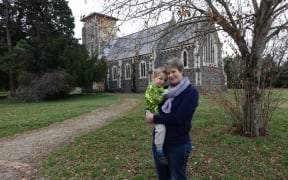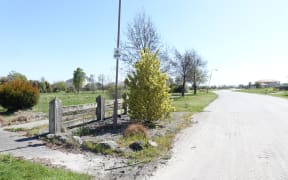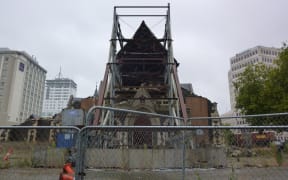Five years on from Canterbury's September 2010 earthquake, a new generation of post-quake children is growing up with road cones, traffic delays, broken homes and stressed parents, but they know nothing else.
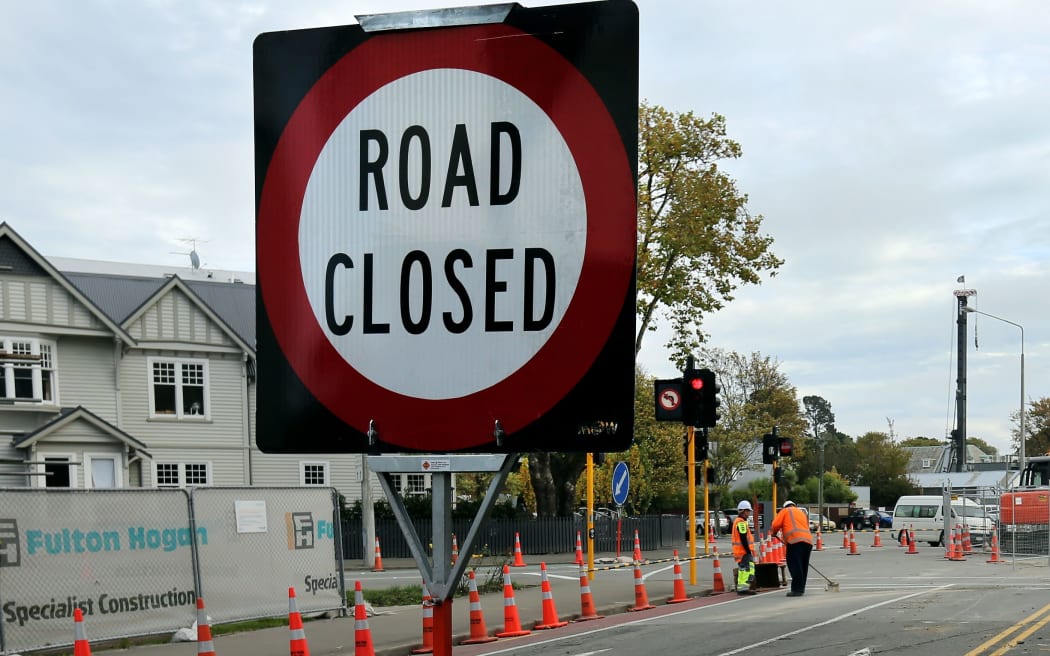
Road works are a common sight in post-quake Christchurch. Photo: RNZ / Diego Opatowski
Research being conducted at the University of Canterbury shows two groups of children are emerging in post-quake Christchurch: those who are coping and those who are not.
The university's School of Health Sciences associate professor Dr Kathleen Liberty is conducting the study, which is documenting post-traumatic stress symptoms found in children beginning school.
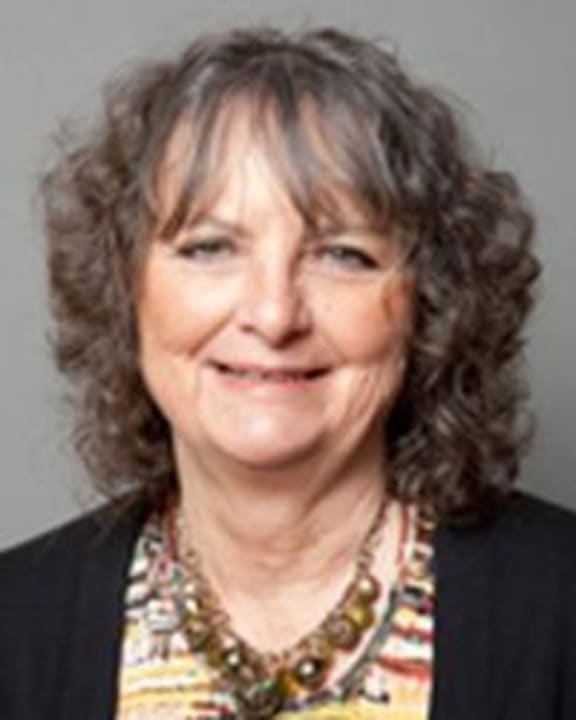
Dr Kathleen Liberty Photo: Supplied
The study is following about 300 children from their first year at school until the age of eight.
Dr Liberty said another study, conducted between 2006 and 2008, investigated the health and behaviour of children starting school. She said the findings of the new research could be compared to what was discovered about children before the earthquakes.
"We use teacher reports and we are collecting information from parents as well. We collect data on their post-traumatic stress symptoms, school attendance and how they are doing in reaching national standards in maths, writing and reading."
The study is looking at children who have lived through the 'earthquake period', which begins with the September 2010 earthquake and goes through to January 2012, which was the last time there was an earthquake higher than magnitude five.
"We continue to recruit children as we go, so the children who start school this week would have been born when the September earthquake first happened."
"We are studying how children are coping with stress and what we are finding is a greater number of children are starting school with better coping skills which is really positive, but we still have a lot of children who have high stress levels which is really concerning their parents and teachers."
The study indicated if children experienced a chronic period of stress while their brain was developing during the age of two and three, their ability to respond to stress was altered.
"We call them stress-sensitive children, for example a small thing like loosing their sun-hat becomes a big deal to them, they are becoming stressed over something that they otherwise wouldn't have."
"These children have lived and recovered from a natural disaster, but living in the aftermath and the stresses involved in that has the potential to create a generation of troubled people."
Dr Liberty said people needed to realise the earthquakes could be more damaging to children's mental health than first anticipated.
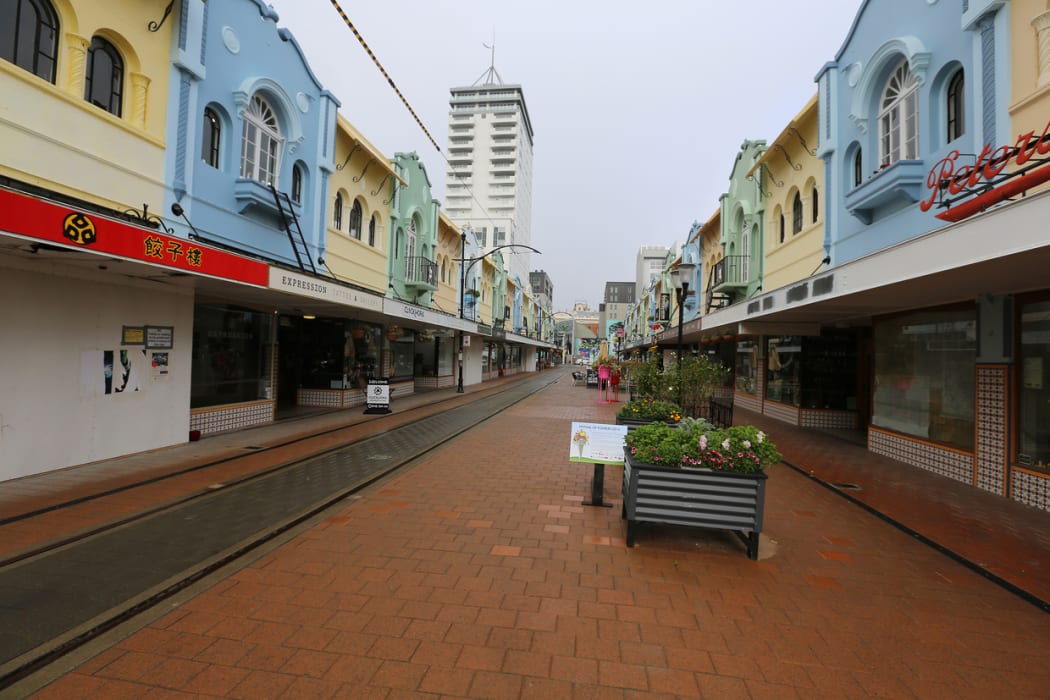
New Regent Street in Christchurch is open for business, but remains quiet. Photo: RNZ / Diego Opatowski
For Libby Scott, 11, who was six when the September quake hit, post-quake Christchurch has become the new normal.
"I remember it, it woke me up in the middle of the night, my mum came running in and picked me up and took me into her room."
Libby said she could hear her neighbour yelling out because she was scared and didn't know what to do.
"She was using her phone as a light because the power went out, she came over with her son and they ended up staying in our lounge for three or four months."
Libby understands Christchurch is different now but if anything she likes it more.
"Although there are not as many buildings it is more colourful, I really like all the street art around the city and the container mall."
"The one thing I miss is the Christ Church Cathedral, we used to go to christenings there all the time. I hope they can fix it." Libby said.
For Libby's mum Jo Scott, the September quake was the most frightening.
"It came from the middle of no-where. It was pitch black, all the street lights were gone and the noise, the noise is something I will never forget."
Ms Scott said her first instinct was to get to her two daughters.
"We grabbed the girls and found some torches and the lolly jar and sat in bed for hours. I've never wished for the sun to come up so quickly."
Her children's lives, like most others, changed that day, she said.
"I went mad after the September quake, I was terrified by the aftershocks and the noise. I took all the pictures off the walls - anything that could make a noise I took away."
"I put the dining table in the hallway with duvets, snacks and games so if there was another earthquake we would have somewhere 'fun' to go," Ms Scott said.
"We lived on edge for weeks, which was hard as a parent because you're the adult and have to be relaxed about everything in order to keep your kids calm."
Research conducted by AllRight?, a Canterbury District Health Board mental health initiative, last year found a third of people surveyed said their children were anxious or clingy.
Twenty-two percent of parents also reported their children had behaviour issues, an increase on 16 percent in 2012.
Ms Scott said her kids coped better than she did, because they were young they thought it was normal.
Her youngest daughter Annabelle was three when the first quake struck, but was in the central business district for the February 2011 earthquake.
"It took us a while to realise Annabelle had anxiety. She didn't like going to other people's houses, and sleepovers are still an issue for her," she said.
"We just always thought it was her personality but now we know her anxiety was probably triggered by the earthquakes.
"I think there are a lot of clingy kids in Christchurch now, whether it has affected kids or adults more I really don't know."
She believed experiencing the earthquakes at such a young age could make children more resilient.
"Nigel Latta had a good quote, he said at the end of this our kids will learn when bad things happen the community comes together and good things happen."
AllRight? spokeswoman and mother of two Anna Mowat said although parents were busy with work, dealing with repairs and insurance, they should find time to just play with their children.
"There has been an increase of anxiety in children, but there has also been an increase with parents and everyone else affected by the earthquake. It's not surprising," Ms Mowat said.
"We need to be careful we don't assume our kids are anxious because of the quakes, we need to be open-minded. We have gone through something unique and incredible, as a result there may be kids who can handle stress really well."
Parents could learn from the new generation of children growing up in post quake Christchurch, she said.
"Children are the ones who point out the heart-shaped stone in the rubble, they are the ones who pick the flowers out of the empty sections. Children are so special we have a lot to learn from them."
Dr Liberty hopes with more funding the University of Canterbury study will continue to follow children born throughout the 'quake period' so a wider picture of the earthquakes and the affect they have on children can be established.
